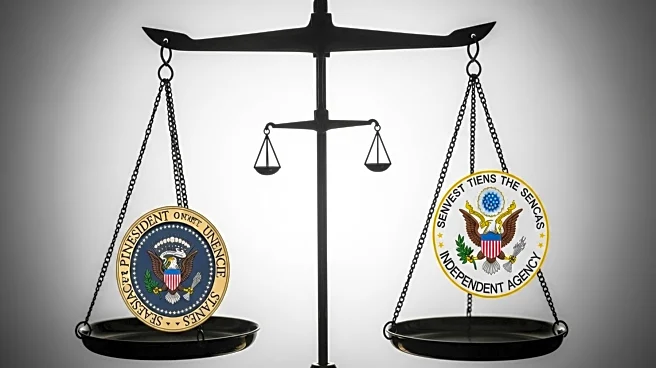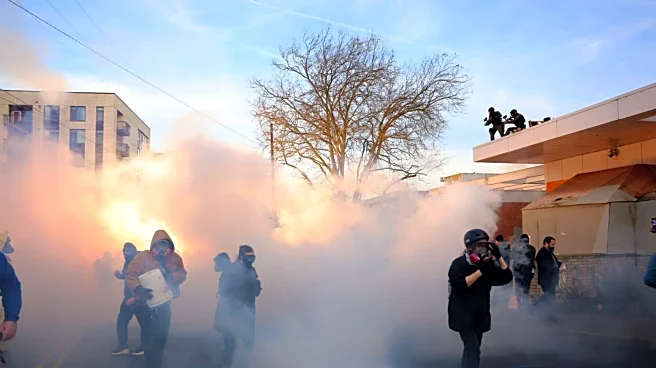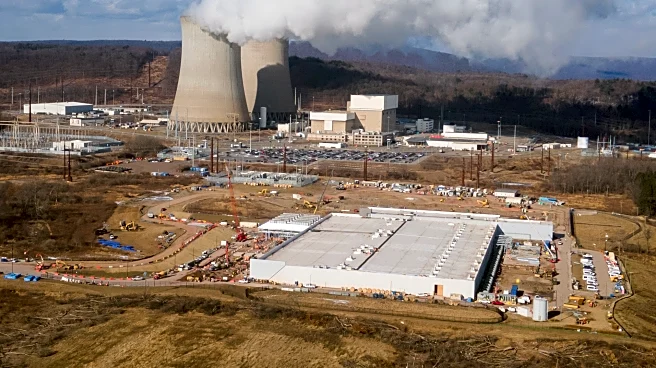What's Happening?
The U.S. Supreme Court is set to deliberate on whether to expand President Trump's authority to dismiss members of independent federal agencies by potentially overturning a 90-year-old precedent. This case involves Trump's recent firings of members from the Federal Trade Commission (FTC), National Labor Relations Board (NLRB), and Merit Systems Protection Board (MSPB). The court has allowed these dismissals, indicating a possible shift in the interpretation of executive power over independent agencies. Justice Elena Kagan has voiced concerns about the court's decisions, suggesting they override congressional intent to grant Trump extensive control over these agencies. The court will hear arguments in December regarding the potential overturning of the Humphrey's Executor ruling, which historically limited presidential power to remove agency commissioners only for misconduct or neglect of duty.
Why It's Important?
The Supreme Court's decision could significantly alter the balance of power between the executive branch and independent federal agencies. If the court rules in favor of expanding presidential authority, it could lead to increased politicization of regulatory decisions, impacting consumer protection, labor relations, and federal employment disputes. This shift may benefit the executive branch by allowing more direct control over agency actions, aligning them with presidential priorities. However, it could undermine the independence of these agencies, potentially affecting their ability to operate based on expertise rather than political influence. The outcome of this case could have lasting implications for the structure and function of federal regulatory bodies.
What's Next?
The Supreme Court is scheduled to hear arguments in December, which will provide further clarity on the potential changes to presidential authority over independent agencies. Stakeholders, including political leaders, regulatory bodies, and civil society groups, are likely to closely monitor the proceedings. The decision could prompt legislative responses or adjustments in agency operations to maintain their independence. Additionally, the case of fired Fed Governor Lisa Cook may test the limits of presidential power over the Federal Reserve, adding another layer of complexity to the issue.
Beyond the Headlines
The broader implications of this case touch on the constitutional separation of powers and the role of independent agencies in safeguarding public interests. The potential shift in agency governance raises ethical and legal questions about the concentration of power within the executive branch. Long-term, this could lead to changes in how federal agencies are structured and their ability to resist political pressures, affecting their effectiveness in regulating industries and protecting consumer rights.









